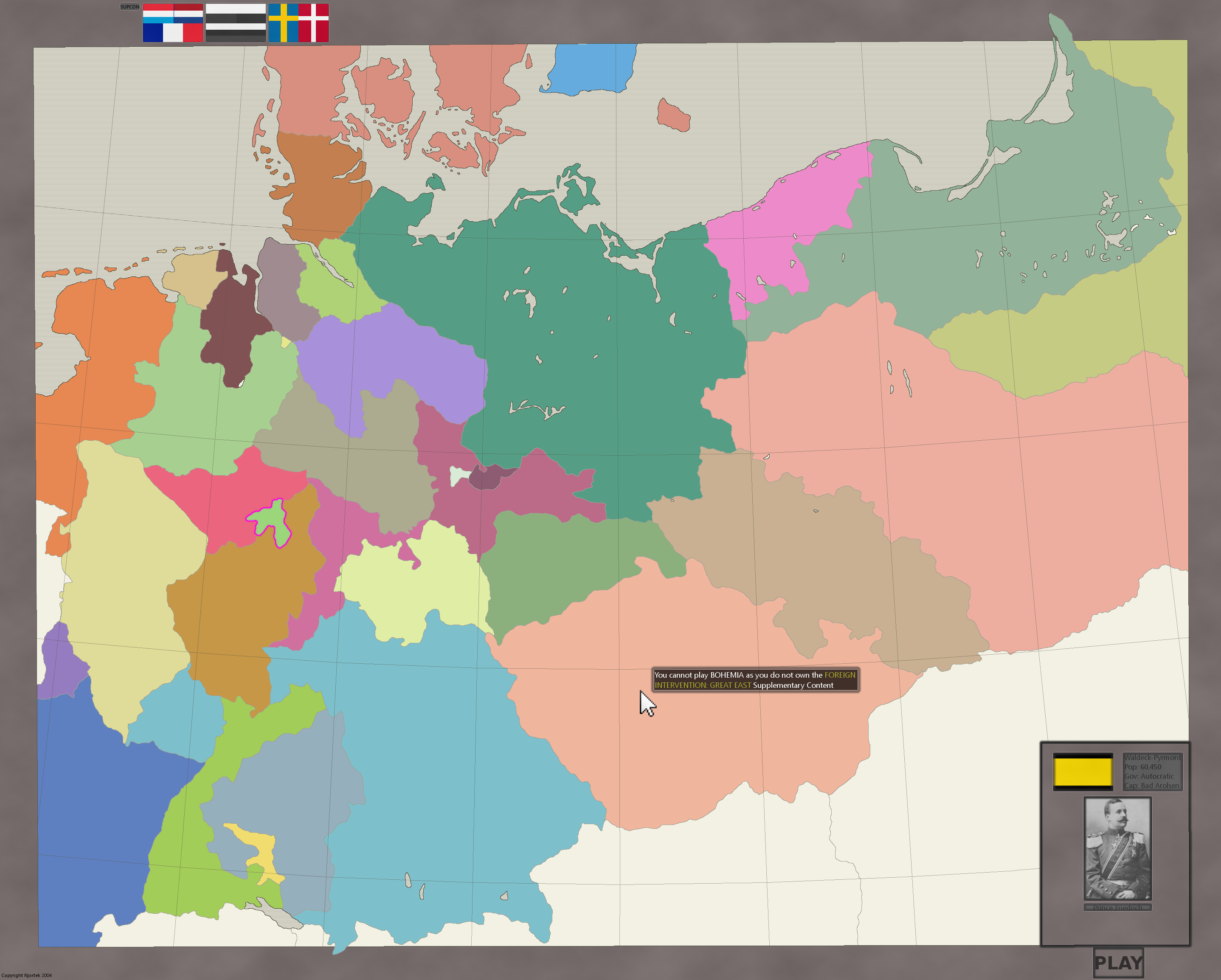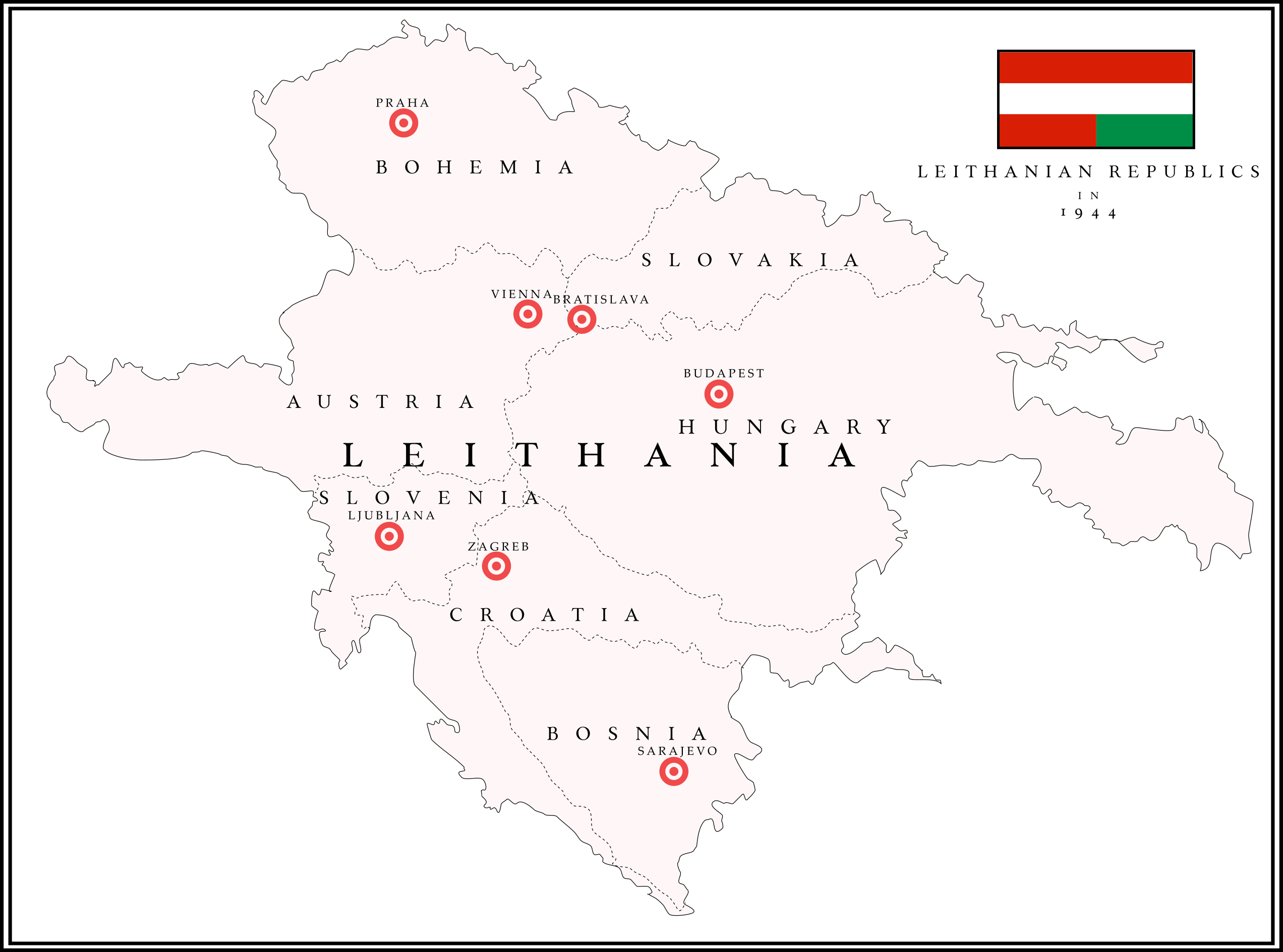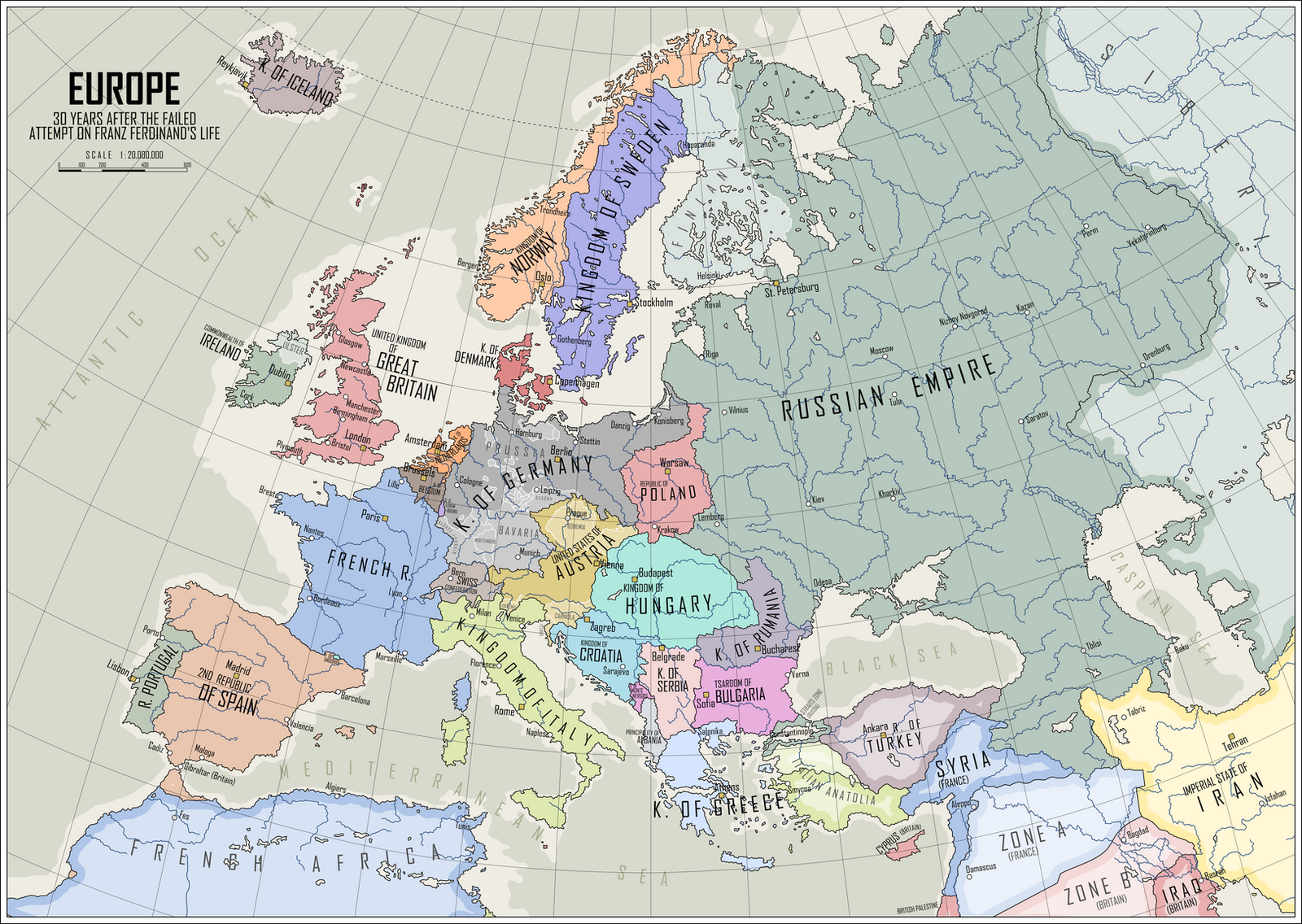With the failed assassination of Franz Ferdinand in 1914, Austrian militarism seemed to rev into a higher gear. Holding Serbia responsible for the attempt, if nothing else, and already looking for an excuse, Austria-Hungary attempted to send an ultimatum to Serbia, but in a surprising turn of events, the Hungarians disagreed. What followed was three months of crisis, and by the end of it, Austria-Hungary lay shattered in pieces, but peace seemed to reign.
That is, until March 1915. Tensions in Germany, heightened by Kaiser Wilhelm's repeated insistence on an aggressive policy against the British, resulted in an attempted German takeover of the island of Zanzibar off the coast of Africa. While the attempt was unsuccessful, Europe went into full crisis mode. the new states of Central Europe avowed their neutrality, and France came to the British side. When Germany refused to budge from its position, believing itself in the right, the month of April opened up with war.
The war would last a total of 5 years, and be fought mostly in Africa and the Franco-German border. The Schlieffen Plan, initially devised for such a war, was quietly discarded by a general staff unsure of making their situation worse, and instead, the war stalemated in Alsace-Lorraine. However, from a naval perspective, the Germans found themselves outmatched against the combined Franco-British fleet at Jutland, and soon a naval blockade against Germany made the situation increasingly tenuous.
By the time 1920 had come, Germany was looking much worse for wear than before. The regions of Bavaria, Württemberg, Baden and even the Prussian province of Hohenzollern had seceded from the Empire and signed a separate, critical peace - effectively stripping them of the ability to raise armies and expand their industry further. The rest of Germany attempted to hold on, but a French push into the Rhineland had succeeded, and on the 2nd of September 1920, the guns fell silent, and Germany capitulated immediately.
The Peace deal saw two angry powers seeking to punish one who had overstepped all boundaries. Five horrific years had been spent, all because of an island in Africa; advances in gas warfare, biological warfare and conventional weaponry had skyrocketed over civilian life in three countries, and most indignantly, German leadership was still attempting to negotiate from a position of non-existent superiority. The results were clear - Outside of a few key regions, Germany was to be fully dismantled and forced to pay significant reparations.
The results were not immediate at first - the remnant of Germany was filled with gangs of unemployed youths seeking to take over the government but most of all fight each other, some of them using military training to this effect. When Wilhelm II abdicated, things were assumed to get better in the country - but the assassination of Wilhelm III and subsequent takeover by the government by Otto von Below left the German state weak and, yet again, in crisis. Several of the states created in the wake of 1920 were able to expand, and by 1925, Poland - newly independent following the Alexine reforms in the Russian Empire - took the province of Posen.
By 1930, Germany had settled into various infighting factions, each fighting for some vague promise that usually culminated in "more power for one man." The situation seemed to stabilize eventually, but by 1944, the German annexation of Pomerania would result in yet another massive war breaking out, this time lasting for 16 years, drawing in nations from all around the fragile country. This civil war would not end until the eventual coalition established between the Bavarian and Rhenish republics pushed into Berlin and Germany was reunited in 1960. Germany remains a poor state, barely having recovered from its near destruction - and by 2000, its GDP remains comparable to that of Pakistan or Dravidia, although European Economic Commonwealth aid is starting to help boost the country's economy.
In 2004, a game would be created based upon the 16 year war by a small Danish company. Although popular within its niche, it never managed to grow far beyond it. In 2011, an updated rerelease would be created for online distributors, including several downloadable content packs adding interventionist nations into the game. This map, the country select screen from the game, roughly shows the situation in Germany in January 1944, seven months before the Pomeranian annexation.



